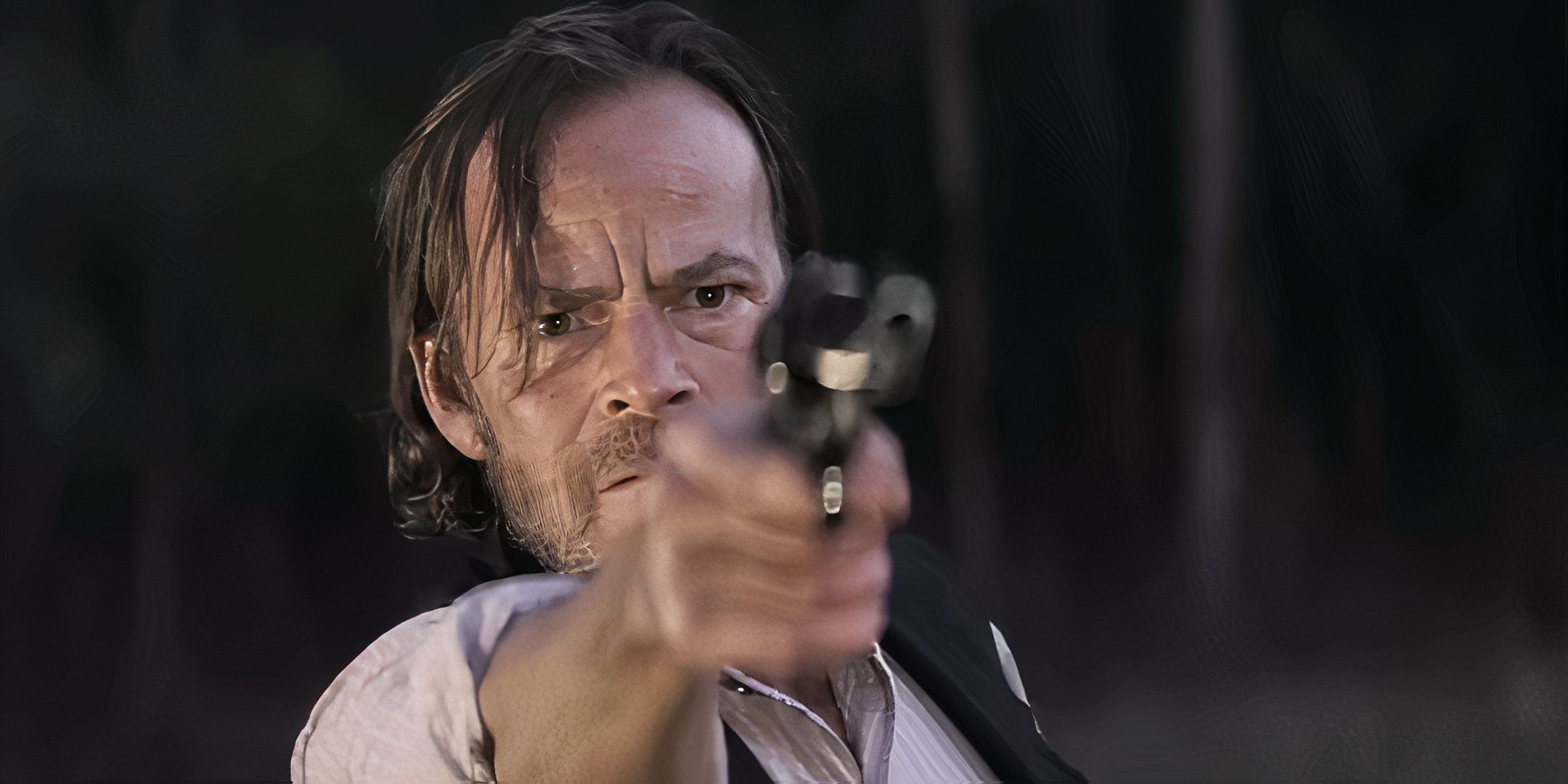Despite having one of the most eclectic filmographies, it wasn’t until a couple of years ago that Nicolas Cage made his Western genre debut with The Old Way and quickly followed it up with the well-received adaptation of Butcher’s Crossing. Now, the Oscar winner is keeping his Western genre tenure alive with the more action-driven Gunslingers, but it unfortunately proves to be a real misfire more akin to his infamous VOD movie streak.
Written and directed by Brian Skiba, Gunslingers centers on Stephen Dorff as Thomas Keller, a man who becomes the most-wanted fugitive in America after a violent incident puts a bloodthirsty mob on his trail, hoping to claim the biggest bounty ever offered. Thomas makes his way to a small Kentucky town, legendarily rumored to harbor fugitives who have faked their deaths and started new lives. When Thomas’ revenge-seeking brother shows up, the town will become the center of an explosive shootout putting all of their morals to the test.
Gunslingers’ Story Lacks Any Kind Of Originality
Its Embracing Of Western Tropes Is More Droll Than Fun
Given the Western genre is one of the oldest and most well-trodden in cinematic history, it’s certainly understandable that modern filmmakers will still utilize certain tropes for their stories. With Gunslingers, however, it feels like Skiba pulled the majority of the tropes from the book to flesh out his story, but rather than strictly going for a tongue-in-cheek embracing of them, or subversive exploration of them, he aims for somewhere in the middle, which results in inconsistency.
It’s Cage’s character, though, who stands out as a key example of how tonally dissonant Gunslingers is.
Whether it’s Dorff’s Thomas, haunted by his violent past and looking for a peaceful life, Heather Graham’s Val, an unhappily married woman who turns to the brother of her husband for comfort, or even Cage’s Ben, a former ruthless killer who has turned to religion to make up for his past, everyone has been in far better movies. It’s not necessarily the actors’ fault, as they do their best with the material they’re given.
It’s Cage’s character, though, who stands out as a key example of how tonally dissonant Gunslingers is. His general backstory may be a familiar one, but it is still one that could be compelling in a completely different kind of movie. Instead, the actor gives him a James Brown-like strained voice which, when combined with Skiba’s focus on action over drama, makes him feel better suited for a movie that strictly goes for an unserious take on the Western genre rather than having brief allusions to drama.
The Movie’s Biggest Problem Is The Bizarre Sound Design
Everything Sounds Like It Was Recorded Underwater
While the lackluster story doesn’t do the movie many favors, arguably the biggest flaw of Gunslingers is its bizarre audio issues. From its opening sequence through its closing credits, I consistently found myself taken out of the film by just how awful everything sounded, particularly the dialogue, which felt so low that it was almost as though they recorded everything with a broken microphone, or even underwater.
This is made all the worse when it comes to the movie’s action sequences, because where the dialogue is low, the various sound effects for gunsH๏τs, explosions, and building destruction are so loud it felt like watching one of Michael Bay’s earlier movies. What makes this so bad is that the characters will often attempt to have conversations amid the gunfire to coordinate their action, but the mixing is so poor that everything completely drowns them out, making it nigh impossible to understand what anyone is saying and all the more frustrating.
Skiba’s Direction Makes It Somewhat Hard To Follow The Action
Quick Cuts Make Some Deaths Nonsensical
With a movie that wants to put the majority of its focus on its action, particularly in the latter half of its story, it’s really a disappointment that Skiba’s direction sometimes undermines that aspect of Gunslingers. There are certainly a few sH๏τs that work well, particularly when Cage and Dorff’s characters get their hero moments taking down multiple gunmen, and while the flow of the overall action could’ve worked, it often feels a little too choppy.
The prime example of this issue is the various nameless goons who are killed during the elongated shootout in Gunslingers‘ latter half. As the characters shoot from the cover of their saloon, the henchmen are subsequently hit and killed, but the issue is they were never seen in the first place. This makes many of these kills not only feel illogical, but also somewhat weightless. Overall, there’s certainly worse to watch in the Western genre than Skiba’s film, but there’s also endless better choices than this.
Gunslingers hits theaters, digital platforms and VOD on April 11.






